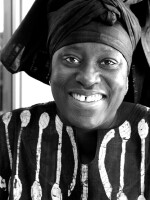RENEE MONTAGNE, host:
There's also continuing political turmoil just across South Africa's border in Zimbabwe. There, President Robert Mugabe and the opposition are having trouble forming a power-sharing government after signing a deal to do so last month. Yesterday, countries in the region had planned to try to end the deadlock, but the meeting was postponed after the main opposition leader refused to attend. NPR's Ofeibea Quist-Arcton has been following the story, and she's on the line now from Johannesburg. And Ofeibea, why didn't opposition leader Morgan Tsvangirai go to the tiny kingdom of Swaziland, where this meeting was being held, to attend?
OFEIBEA QUIST-ARCTON: I think we are seeing Morgan Tsvangirai flexing some political muscle. This is an opposition leader who is now prime minister-designate who, I think, is fed up of not being granted a normal passport for almost a year by President Mugabe's government. Apparently King Mswati of Swaziland offered to send his personal jet to go and pick up Tsvangirai from Zimbabwe. He refused. I think he's telling everybody, the region, that this is not good enough.
MONTAGNE: Well, it does seem to say something when the president of the country won't give his main opponent a passport. I mean, what else is holding up, or what are the really serious issues holding up this power-sharing agreement?
QUIST-ARCTON: Right, that's the technical, logistical issue, if you want - the fact that he wasn't prepared to travel on temporary travel documents. I think the main thing is the distribution of key cabinet posts. Ten days ago, President Mugabe unilaterally awarded the most influential ministries to his own people. Morgan Tsvangirai's opposition Movement for Democratic Change said, uh uh. That is not in the spirit of the peace power-sharing agreement we signed last month. We will share out these ministries equally.
So, former President Thabo Mbeki of South Africa, who is the chief mediator in the Zimbabwe crisis, weighed in again, flew back into Harare. And for the whole of last week, they had four days of intensive negotiations to try and sort out this main obstacle. But by Friday, that hadn't happened. And it looked as if this shaky power-sharing deal was even shakier, which is when the region said we will have to try and deal with this, the Southern African Development Community.
MONTAGNE: Well, those being Zimbabwe's neighbors, are they united in how they want to see this political dispute resolved?
QUIST-ARCTON: Not publicly. You have had Botswana saying even that the election should be rerun, or at least the votes should be recounted, and has been very outspoken in criticizing President Robert Mugabe. That is not what most of the region is doing, though. Another of Zimbabwe's neighbors, Zambia, the former president who died in August, was also critical. He was actually head of the regional grouping and said, we have got to as a region sort out these problems.
But President Robert Mugabe still has considerable allies in southern Africa. But I think everybody's worried. Zimbabweans are crossing their borders, trying to leave their country, fleeing, because of the economic turmoil, because of the political turmoil, because of the humanitarian crisis. So Southern Africa knows that it has got to resolve the problems in Zimbabwe, otherwise they affect the whole region.
MONTAGNE: And just finally, in just a few words, is President Mugabe still firmly in control of Zimbabwe?
QUIST-ARCTON: I wouldn't say firmly in control. He is also flexing his political muscle. You know, it's a regional dynamic now. You've got former President of South Africa Thabo Mbeki as the chief mediator, but of course he doesn't have the same authority that he did as the leader of the most important and influential country in the region. But, you know, all Zimbabweans want is a government that is going to lead them out of economic meltdown, push them towards a better life.
MONTAGNE: Ofeibea, thanks very much.
QUIST-ARTCON: Always a pleasure.
MONTAGNE: NPR's Ofeibia Quist-Arcton, speaking from Johannesburg. Transcript provided by NPR, Copyright NPR.







